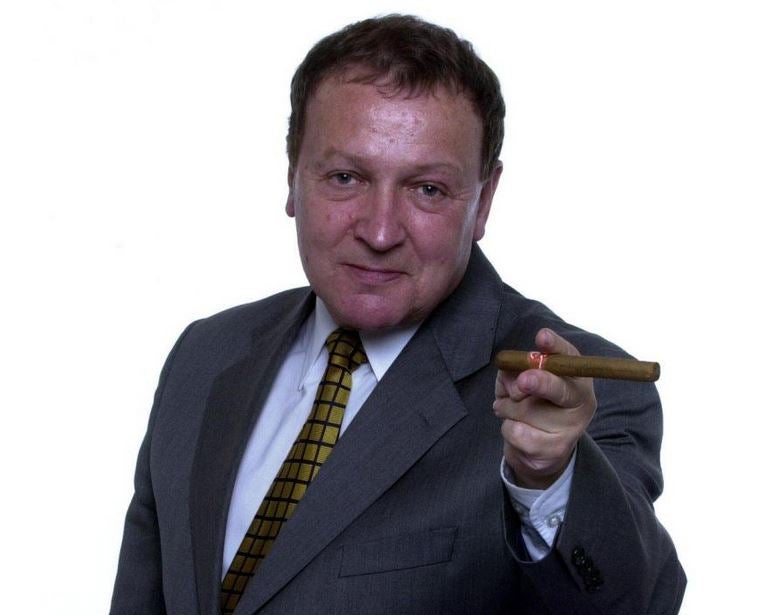
Much has been written since the sad death last week of Fleet Street’s gypsy political editor Chris Buckland. Most of it true and free from any of the usual bar room hype and exaggeration.
His quip about “the first casualty of war is not truth but room service” was just one gem from the 73-year-old Burnley-born maestro’s fun book. It, and others, have already had a good outing in many obituaries and will not require embellishing.
His ability to out-drink many a Grub Street hack and his strength in successfully killing off his demons over three decades ago rightly got a good show following his death from cancer.
But an error in one about the manner of his drying out in the Priory brought home to me how Fleet Street has changed since the glory days.
It was something Chris was grateful for and often talked about. He said it would never be repeated by the beancounters of today.
After working brilliantly as bureau chief in the Mirror’s New York office, aided and abetted by his love of M&Ms (Manhattan Martinis) and – following a successful drinking apprenticeship during the “The Trebles” in Belfast – the road to recovery organised by Mirror bosses was not as brutal as portrayed in one obituary.
He was not ordered back to London and told there was a car waiting to take him to the Priory on arrival at the airport.
The true story is much better than that and is, perhaps, an object lesson for today’s men in suits who try to be as successful in the saving of pennies as they are at snuffing out the careers of loyal journalists.
In those happier and more caring times the bosses at the Mirror realised that Chris, although doing a competent job as foreign editor on his return from the US, had a drinking problem and it needed to be tackled.
Without any fuss a decision was taken by the editor and management. Chris was booked into the Priory. The Mirror paid and he made a successful and productive return to the Mirror with only close friends knowing. He was not the only one to benefit from their life-saving intervention.
From there he made a joyful return to the his natural home before the journey around the nationals as the leading political writer of his day. His sharp wit and limited patience for politicians’ pomposity made him popular – not least with the “honourable members” he lampooned.
Typical of his sense of humour can be found in Ann Morrow’s book, The Queen. He told Her Majesty at a reception how, during an earlier royal visit to Nassau, a local radio reporter described her arrival at the airport.
Chris, imitating how the home-grown commentator described it on air, told her: “He said ‘Heah come de Queen and de Duke down de ayahkraft steps lookin’ quait smart and quait fit.'”
The laughing Queen called the Duke and said: “Oh, come and listen to this!” Her Majesty, an accomplished mimic herself, is known to have repeated this many times for the amusement of her friends.
In 1954 Chris took centre stage during a reception in Australia. Never one to miss a chance for a joke he was asked by an equerry to tell the Queen his oft quoted story of how he got into Albania through its then tough border controls.
“I’m not sure I should tell you, ma’am, because as a British citizen I defaced your passport.” Encouraged by the royal interest he ploughed on to explain how his nickname became “the Albanian waiter”.
“Where my passport should show ‘Writer’ I altered the R to an A.” The Queen joined in the joke.
If it raised a laugh Chris was always ready to tell stories against himself – when he wasn’t debunking the pompous and famous.
Proud of his Northern roots he often recalled the time he played the piano at a school concert in the Mechanics’ Institute in Burnley. After the first piece Chris complained to his dad, Claude: “Not many people applauded.”
“Erm, yes lad, they fought you were just warming up,” said his doting dad.
Chris died peacefully on 28 February after an eight-year battle with cancer mourned by many including the very people he lampooned.
He was only 5′ 6″ tall but was a giant in his profession as foreign correspondent for the Daily Mirror, their political editor and bureau chief in Belfast during the worst times of the “Troubles” where he was blown though a shop window during a bomb blast.
He put down his survival to his diminutive size. “If I had presented a bigger target I would not be here now,” he said.
He went on to be political editor on many of Fleet Street’s national newspapers. He overcame alcoholism over 30 years ago with the same determination he tackled the cancer that finally got him after eight years.
For a man of his height he cast a long shadow.
Christopher Robert Buckland. 4 January 1944 – 28 February 2017.
Picture: The Sun (News UK)
Author Syd Young is a retired journalist who spent 37 years on the Mirror and was a life-long friend of Chris Buckland.
Email pged@pressgazette.co.uk to point out mistakes, provide story tips or send in a letter for publication on our "Letters Page" blog
